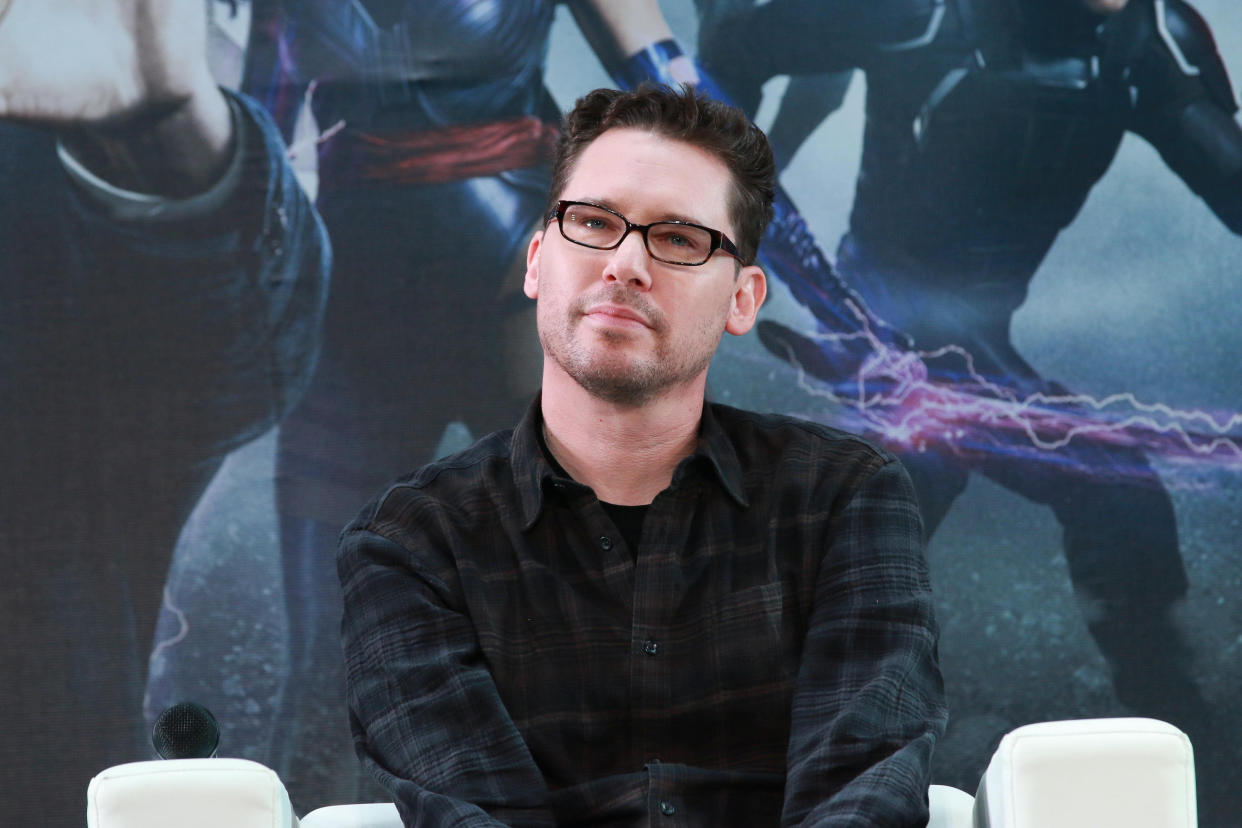Making original 'X-Men' movie 'created a monster' with Bryan Singer's alleged predatory behavior: report

Allegations against Bryan Singer have been rampant in recent years, with the filmmaker being accused of sexual assault by multiple men, many of whom claim they were targeted while underage.
According to a new investigation by The Hollywood Reporter, Singer’s alleged predatory behavior dates back at least to 2000’s X-Men, his seminal Fox-Marvel superhero hit that turned 20 this month and helped shape the future of the MCU and all comic book movies.
“His behavior was poor on the movie,” an unnamed exec involved in the film told the trade publication. “We accommodated him on the first movie, and therefore we can accommodate him on the second movie. And on and on. And it created a monster.”
Singer has not commented on THR’s allegations. In the past, he has adamantly denied allegations of abuse.
In the 1990s, when he was hired to helm X-Men, Singer was one of the hottest directors in Hollywood, coming off his Sundance-winning debut Public Access (1993) and his Oscar-winning 1995 sensation The Usual Suspects. But there were red flags, notably a 1997 civil lawsuit brought by two minors — one 14 and one 17 — who claimed they were forced to strip naked on the set of Singer’s third film, Apt Pupil (1998), which he had begun shooting shortly after he was initially linked to X-Men in August 1996. At least two other young actors made similar allegations, and one, Victor Valdovinos, later said he was molested by Singer during Apt Pupil’s production.
On X-Men, the director raised eyebrows (and ire) when it came to the screenplay. His assistant at the time, David Hayter, received sole writing credit even though several A-list scribes, including Christopher McQuarrie (The Usual Suspects, Mission: Impossible), Ed Solomon (Men in Black), John Logan (Gladiator) and James Schamus (Crouching Tiger: Hidden Dragon), made varying contributions. According to Hayter, he wrote what amounted to 55 percent of the script, though other insiders say the majority of what you see on screen was penned by McQuarrie and Solomon, who were so upset by the process that they asked that their names be removed from the film.

And then there was casting. The lead roles went to Patrick Stewart (though, as THR notes, Singer bizarrely considered Michael Jackson for the part of Professor Charles Xavier at one point), Ian McKellen, Hugh Jackman, Halle Berry, Famke Janssen, Anna Paquin and Rebecca Romijn. “Many of the smaller and extra roles were peppered with handsome young men,” THR notes.
That alone was not the issue. A number of young men, the publication points out, including some who were minors at the time, have publicly stated that an audition was offered in exchange for sex. One 18-year-old, Alex Burton, was cast in the role of Pyro and later filed a civil suit against three of Singer’s friends and associates claiming he was plied with drugs and sexually assaulted by them.
Singer was already developing a reputation for a hard-partying lifestyle and constantly surrounding himself with an entourage that included very young men. He also became difficult to work with on the set of X-Men, according to THR, whose interviewees characterized “his drug use as problematic, leading to late arrivals to the set, mood swings and explosive tantrums.” Kevin Feige, the future head of Marvel Studios who was, at the time, a young exec working for X-Men producer Lauren Shuler Donner, was reportedly dispatched to the set to help reel Singer in.
X-Men would go on to become one of the highest-grossing movies of the year. And despite all of the drama surrounding his work on it, Singer would continue to flourish in the business, later helming X2 (2003), Superman Returns (2006), Valkyrie (2008), Jack the Giant Slayer (2013), X-Men: Days of Future Past (2014), X-Men: Apocalypse (2016) and Bohemian Rhapsody (2018), on which he was removed by Fox with weeks left in production due to apparent absences and clashes with the cast and crew.
In April 2014, Singer was accused of drugging and raping actor and model Michael Egan when he was a minor in the late 1990s. A month later, he was named in another lawsuit accusing him of sexually assaulting an unnamed British man who was a minor in 2006 when Singer was in London for the premiere of Superman Returns. However, both of the 2014 suits were later withdrawn at the accusers’ requests. In December 2017, Cesar Sanchez-Guzman accused Singer of raping him at the age of 17 in 2003. Four additional men accused Singer of sexual assault in a 2019 investigative report by The Atlantic. Singer's lawyer told the magazine that the director “has never been arrested for or charged with any crime, and that Singer categorically denies ever having sex with, or a preference for, underage men.”
Singer wound up settling with Sanchez-Guzman for $150,000 in June 2019 but did not admit any wrongdoing. Singer’s attorney told CNN at the time that “the decision to resolve the matter ... was purely a business one.”
“It’s a weird business, the film business,” Shuler Donner told THR. “We honor creativity and talent, and we forgive the brilliant ones. Unconsciously, we probably do enable them by turning a blind eye to whatever they’re doing and taking their product and putting it out to the world.”
Read more on Yahoo Entertainment:



